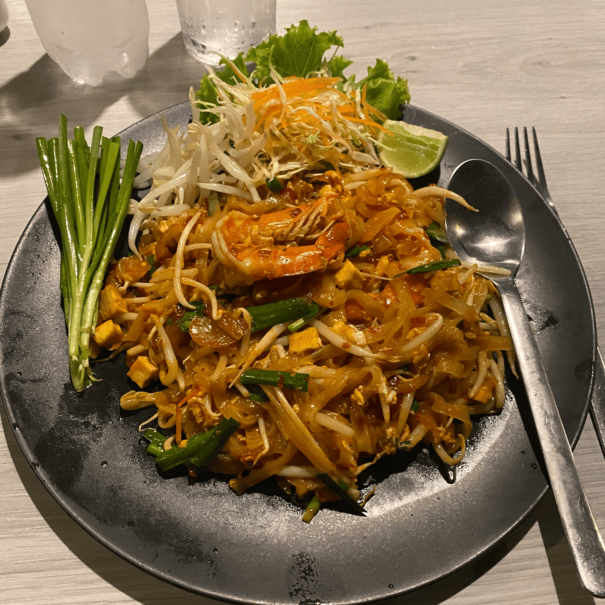

Essential Travel Tips
Touristic Information
Find everything you need to know about local attractions, dining options, and cultural experiences right here.
Ideal Time to Visit
The best months to visit Phuket are from November to April, when the weather is perfect for outdoor activities like swimming and boating. From May to October, the island experiences its monsoon season, bringing heavier rainfall and rough seas. While accommodation rates are lower during these months, the conditions may not be suitable for water-based activities due to the unpredictable weather.
November-April (Peak Season)
The months between November and April are considered peak season in Phuket, with temperatures typically in the low 80s°F (around 27-28°C) and calm seas, making it perfect for beach activities. However, with the high demand for accommodations, this period also sees higher prices for lodging and tours.
Makha Bucha Day
A significant Buddhist holiday honoring the teachings of Buddha.
Thao Thepkasattri-Thao Sri Suntorn Festival
A celebration of Phuket’s history and the island’s two heroines who fought against Burmese invaders.
Phuket Bike Week
A lively event for motorcycle enthusiasts, featuring parades, exhibitions, and performances.
May-October
From May to October, Phuket experiences its monsoon season, with heavy rainfall and powerful waves along the coast. The sea can be particularly dangerous, with strong rip currents, making swimming on the west coast unsafe. Despite the wet weather, temperatures still average in the 80s°F (around 27-29°C), and the lower accommodation prices can make this period an attractive option for those who don’t mind the rain and prefer fewer crowds.
Visakha Bucha
A major Buddhist celebration marking the birth, enlightenment, and death of the Buddha.
Laguna Phuket International Marathon
A popular event for runners, featuring various race categories, from 5K to a full marathon.
Phuket Vegetarian Festival
A unique cultural event featuring processions, traditional rituals, and vegetarian feasts.
Understand the Beach Flags
Phuket sees several drownings and daily rescues due to dangerous sea conditions, so it's crucial to follow the beach flag warnings. A red flag means "no swimming," a yellow flag signals "caution," and a pair of half-red, half-yellow flags indicates the safe swimming zone, where you should stay between the flags.
Negotiate Tuk-Tuk Prices
Before hopping into a tuk-tuk, always agree on the fare to avoid any surprises when you reach your destination. Tuk-tuks can be expensive, so it’s best to set the price in advance.
Avoid Tap Water
To avoid stomach issues, stick to bottled water for drinking. It’s a safer choice than tap water, which may not be suitable for all visitors.
Car Rentals
Car rentals are available at Phuket International Airport through international agencies like Avis, Budget, and Hertz, as well as through some local companies. You can also book a car directly through your hotel, often at a discounted rate. Make sure to carry an international driving permit, which can be obtained from organizations like AAA, alongside your home country’s driver’s license. The roads in Phuket can be poorly marked and not always well maintained, so it's advisable to use a GPS and bring a few maps for navigation. Note that speed limits are posted in kilometers per hour.
Taxis
Taxis are becoming more widespread in Phuket and are a convenient choice for getting from the airport to your hotel. However, metered taxis can be difficult to find. Using the Grab app, which operates similarly to Uber, is a reliable way to secure a ride.
Tuk-Tuks
Tuk-tuks are the most iconic way to get around Phuket. These small red or yellow trucks are easy to spot and can be hailed from the side of the road, though you may need to negotiate the fare. Within town, the price should typically be around 50 Thai Baht (about $1.50), though some drivers might charge a flat fee of around 100 Thai Baht (around $3). Make sure to agree on the price before hopping in.
Songthaews
For more budget-friendly travel between beaches, songthaews (converted pickup trucks with bench seating) are an excellent choice. These shared rides are cheaper than tuk-tuks, as the cost is split among passengers. Songthaews typically run from 7 a.m. to 5 p.m., and the fare is around 25 Thai Baht (less than $1) per person. They stop at popular bus stops in the main beach towns, making them a convenient option for getting around the island.
Getting Around Phuket
Tuk-tuks are a popular and fun way to get around Phuket, but they can be pricey, particularly for trips outside of the town. For longer distances, consider taking a metered taxi, a songthaew (shared pickup truck), or renting a car. Most travelers arrive at Phuket International Airport (HKT), located in the northern part of the island. Most tourist accommodations are concentrated in the southern regions, including Patong, Kata, Karon, and Phuket Town. If your hotel doesn’t provide an airport shuttle, you can take an airport bus to Phuket Town, or a taxi directly to your destination. While vans and minibuses are available to transport passengers to southern areas, it can be tricky to determine which services are reliable. If you're unsure, ask your hotel concierge for recommendations on trustworthy transport options. The most popular and immersive way to travel around Phuket is by tuk-tuk, although depending on your destination, you might also consider other transportation options, such as taxis or rental cars, especially for trips outside the town where you're staying. Tuk-tuks, the small yellow or red trucks, are readily available and are a fun way to explore the island. However, for longer journeys, such as trips beyond the city, they can become quite costly, and other options like metered taxis, songthaews, or rental cars might be more economical. Most visitors arrive at Phuket International Airport (HKT), located in the northern part of the island. The main tourist areas are concentrated in the southern region, including Patong, Kata, Karon, and Phuket Town. Upon arrival, it’s worth checking if your hotel provides an airport shuttle. If not, you can take an airport bus to Phuket Town. Taxis are generally the most straightforward way to reach your accommodation, though there are also van and minibus services available. Be cautious when choosing these, as it can sometimes be tricky to know which operators are reliable. If your hotel doesn't offer shuttle service, the concierge may be able to recommend trusted transportation providers.
Safety
When visiting Phuket, one of the main safety concerns is the risk of strong rip currents and undertows, especially during the monsoon season from June to October. Always pay attention to lifeguard warnings and beach flags. For example, a red flag means "no swimming," a yellow flag indicates "be cautious," and a pair of half-red, half-yellow flags shows the designated swimming area.
Due to the risk of the Zika virus, the CDC advises pregnant women, as well as couples planning to conceive, to avoid traveling to Thailand. To reduce the risk of mosquito bites, all travelers should use insect repellent and wear protective clothing, such as long-sleeve shirts or high-tech fitness wear.
Certain areas of Phuket, such as Patong, are known for sex tourism, drugs, and prostitution. While these activities are often hidden from public view, it’s important to stay alert, especially at night, and be cautious in these areas.
Culture & Custom
Thai is the official language of Thailand, including Phuket, though most tourist operators are proficient in English. It can still be useful to learn a few basic phrases to enhance your experience. Key phrases include: "hello" (sa wat dee), "how are you?" (sa baai dee reu), and "thank you" (kòp kun mâak). If you're traveling to less touristy areas, it's a good idea to show taxi or tuk-tuk drivers the address in Thai to avoid any confusion.
Thailand's currency is the baht, with 1 U.S. dollar roughly equal to 33 baht (although exchange rates fluctuate). While currency exchange services are available at the airport, the best rates are often found at local money changers in Phuket.
Buddhism is the dominant religion in Thailand, and this is reflected in many of the island's attractions, such as Big Buddha and Wat Chalong. When visiting these sacred sites, it's important to adhere to the dress code: wear modest clothing, covering your shoulders and knees.
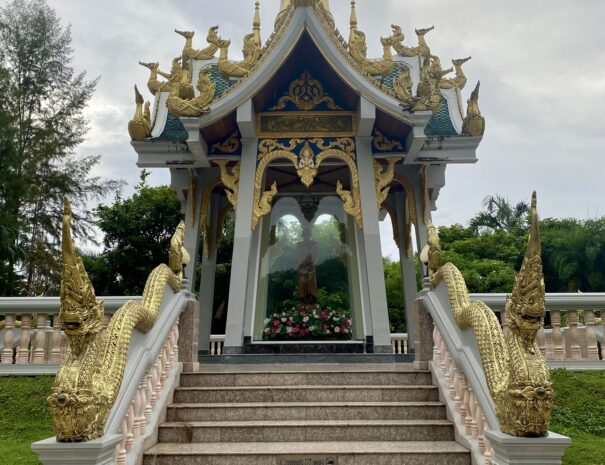

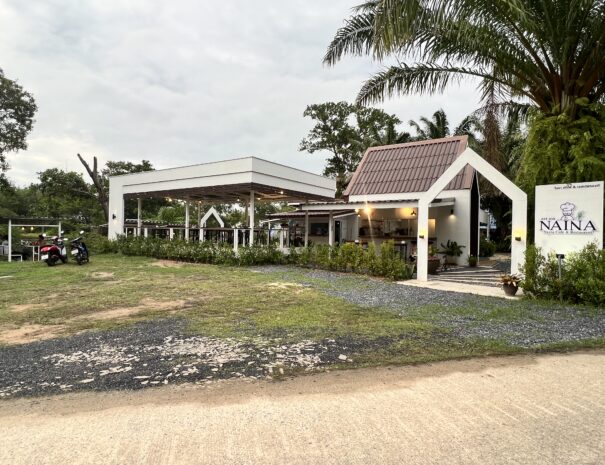
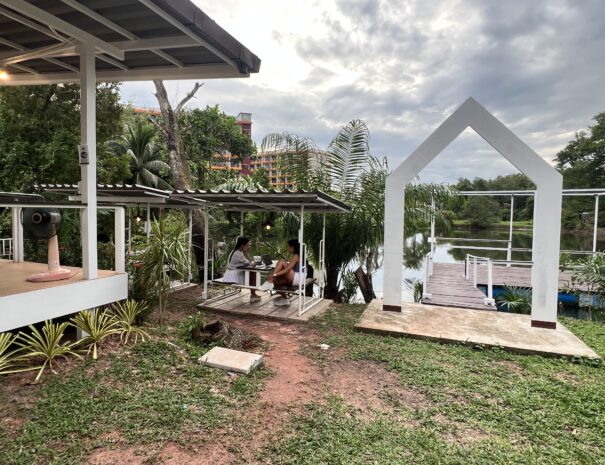
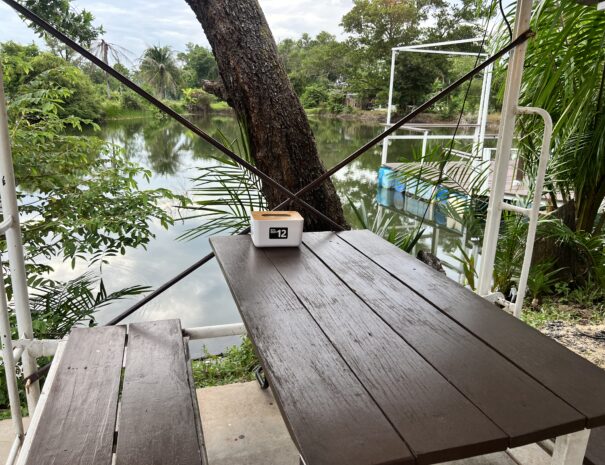
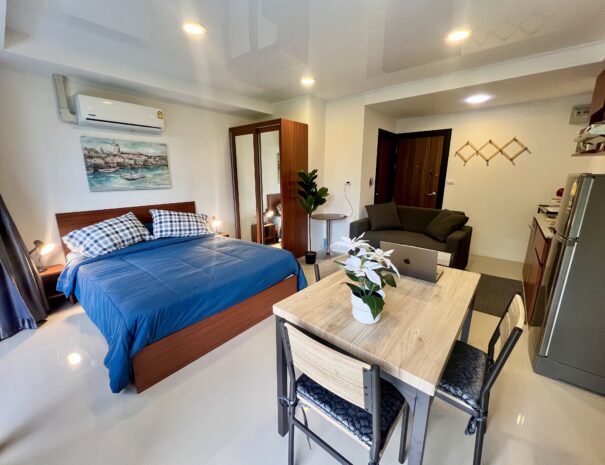
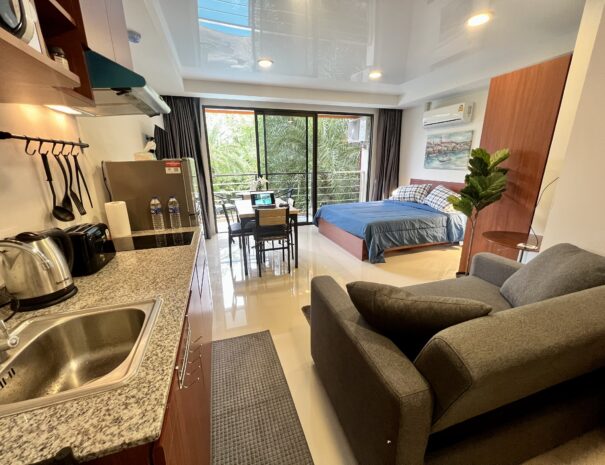
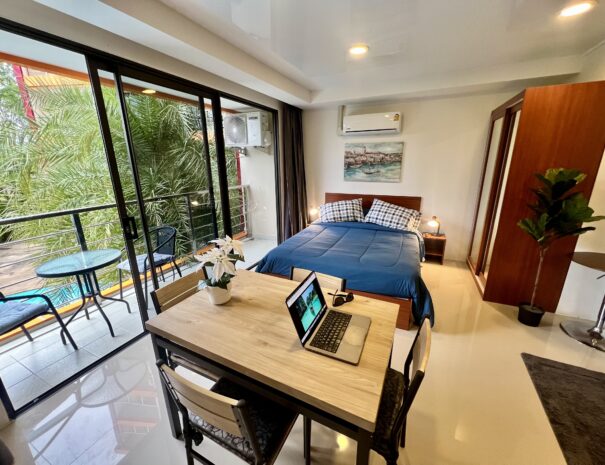
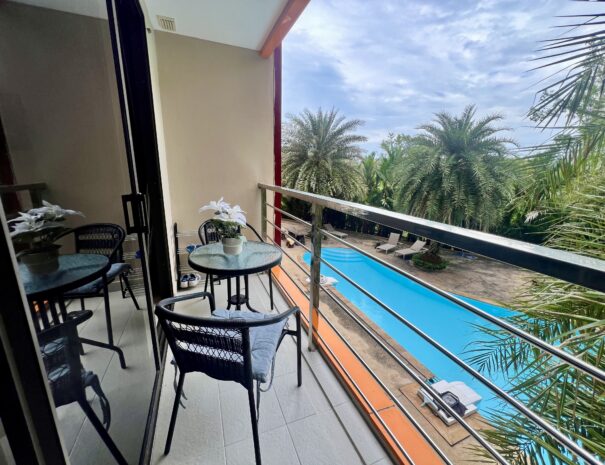
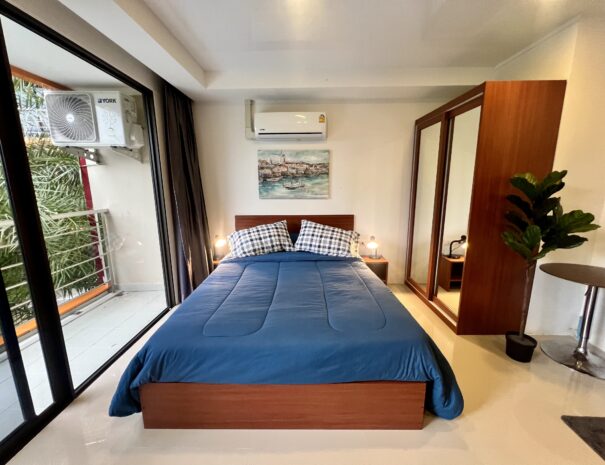
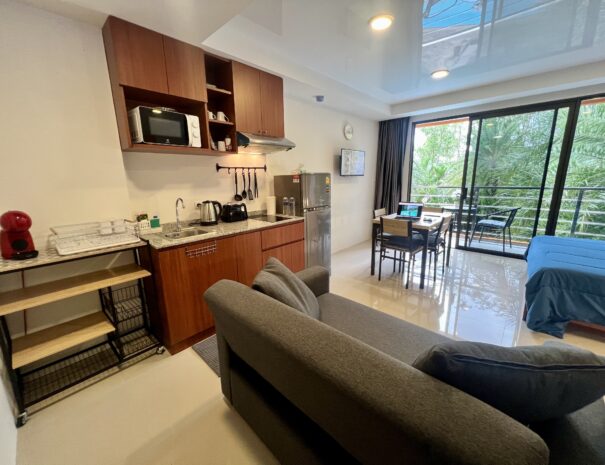
What to Eat
Thai Food
Phuket's cuisine draws heavily from the rich flavors of the Thai mainland, featuring popular dishes like Tom Yum Goong (spicy shrimp soup), Som Tam (papaya salad), and green curry. For a fine dining experience, Thong Dee The Kathu Brasserie is a top choice, known for its friendly service and consistently excellent food. If you're after something more casual and budget-friendly, O-Oh Farm Ta-Eiad in Phuket Town serves up tasty, affordable meals. For those wanting to dive deeper into local flavors, cooking classes are a great option. The Kata Thai Cooking Class by Sally, located in Kata Beach, and the Phuket Thai Cookery School in Phuket Town both offer hands-on lessons in preparing traditional Thai dishes like prawn soup and green curry. Classes typically cost between $60 to $90 per person and are taught in English, making it a fun and educational experience for food lovers.
